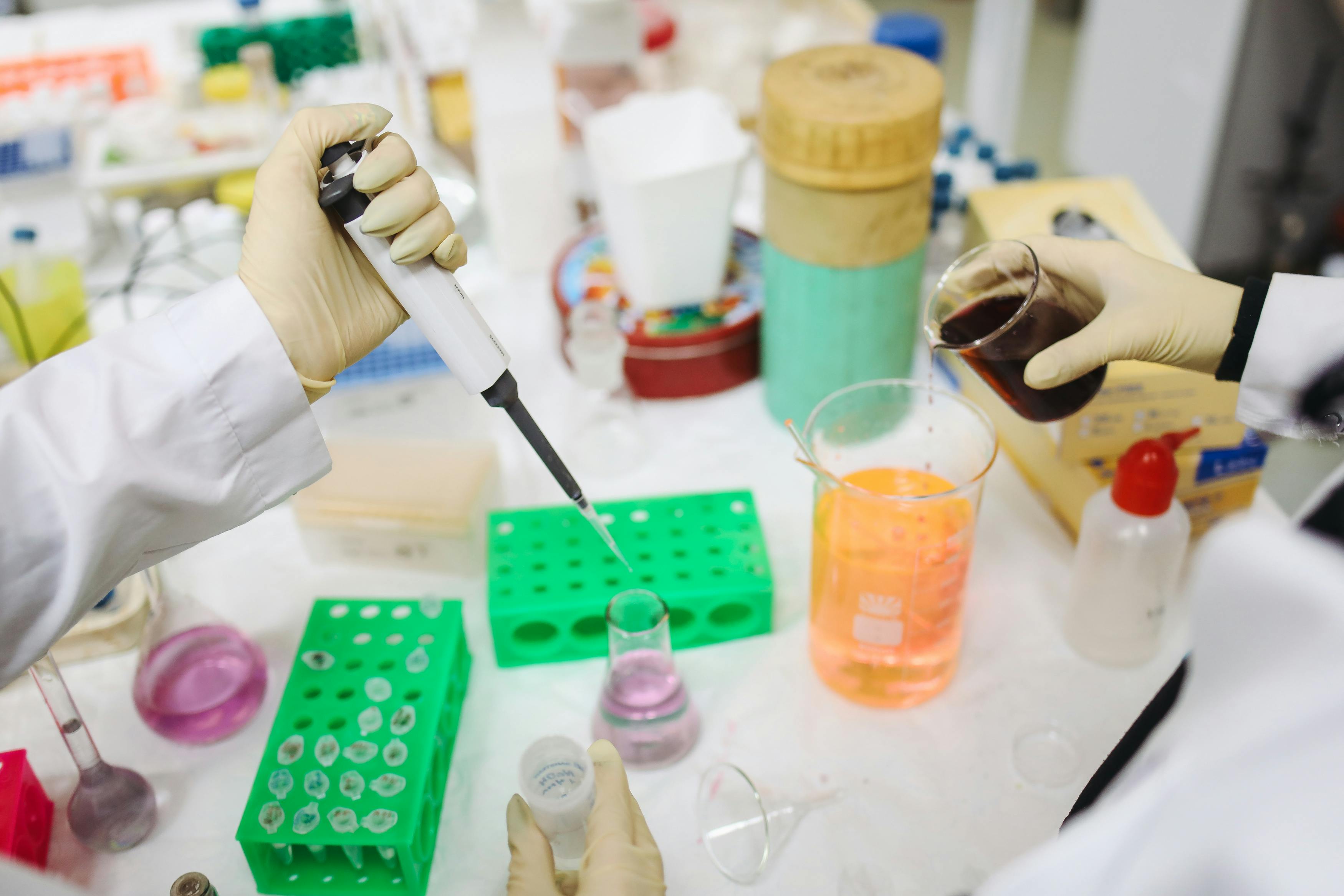Smart Ways to Optimize Your Creatin Test in 2025: Achieve Accurate Results
In recent years, the creatinine test has become an essential tool in assessing kidney function and overall health. As we look toward 2025, optimizing this test is crucial for delivering accurate diagnosis and treatment. This article aims to explore practical strategies both for healthcare professionals seeking to enhance testing processes and for patients wanting to understand their results better. By utilizing the latest advancements in testing technology and patient preparation techniques, we can achieve superior results that inform better health decisions.
The benefits of optimally conducting creatinine tests not only lead to precise results but also enhance patient trust and satisfaction. This roadmap will outline effective methods, discuss innovative testing technologies, and provide expert recommendations for preparing both patients and practitioners for improved outcomes. By the end of this article, you will have a comprehensive understanding of how to navigate the evolving landscape of creatinine testing and implement best practices for optimal results.

Essential Preparation Techniques for Accurate Creatin Testing
Building on the importance of accuracy, the preparation phase of a creatinine test is vital. Ensuring that both patients and testing environments are properly set up can significantly affect the results.
Understanding Patient Preparation
Preparation for a creatinine test begins with understanding its purpose. Patients should be informed about the nature of the test and any necessary fasting or medication adjustments. Clear communication is crucial in reducing anxiety and enhancing compliance.
Dietary Considerations
Diet can have a notable impact on creatinine levels. Prior to testing, patients should be advised to avoid excessive protein intake, hydration variations, and certain supplements like creatine. These practices help to stabilize test outcomes and prevent misleading results.
Timing and Scheduling for Optimal Results
Scheduling the test at a time that aligns with standard routines—for example, early morning—can further enhance reliability. This timing minimizes fluctuations that occur throughout the day due to dietary changes or physical activity.
Education Through Literature and Digital Media
Providing informative materials, both digital and print, about creatinine testing can empower patients. Resources should print clear guidelines on what to expect and how to prepare, reducing confusion and enhancing cooperation.
Utilizing Technology for Patient Reminders
Incorporating digital technology, such as reminder apps, can also ensure patients are adequately prepared. Automatic notifications about fasting requirements or dietary restrictions help avoid last-minute mishaps, leading to more reliable test outcomes.
Innovative Methods to Conduct Creatin Tests
With these preparation strategies established, we can shift to innovative practices that enhance the accuracy of creatinine tests. Technological advancements continually reshape the landscape of medical testing.
Leveraging Advanced Testing Technologies
Technological innovation plays a pivotal role in optimizing creatinine testing. New devices and methodologies, such as point-of-care testing kits, reduce the time taken to produce results, allowing for quicker clinical decisions. Health professionals should stay updated on these evolving technologies.
Implementing Automated Analyzers
Utilizing automated analyzers can significantly reduce human error and enhance precision in measuring creatinine levels. These machines provide consistent results and can analyze various samples efficiently.
Ensuring Quality Control Procedures
The importance of quality control in testing cannot be overstated. Regular maintenance and calibration of testing equipment ensure its reliability and accuracy. Laboratories should establish strict quality assurance protocols to maintain high testing standards.
Incorporating Artificial Intelligence in Diagnosis
Artificial Intelligence (AI) can analyze creatinine test data to identify patterns that human practitioners might miss. Employing AI tools not only aids in accurate diagnosis but can also flag potential issues before they become serious health concerns.
Remote Monitoring for Continuous Assessments
Remote monitoring devices have made it possible for patients to maintain consistent oversight of their kidney function from home. This ongoing monitoring can help catch fluctuations in creatinine levels early, leading to timely interventions.

Analyzing Test Results: Understanding the Numbers
Having discussed preparation and testing methods, we can now delve into interpreting the results. Understanding creatinine levels is crucial for determining kidney health.
Normal Creatinine Levels Explained
Generally, normal creatinine levels range from 0.6 to 1.2 mg/dL in adult men and 0.5 to 1.1 mg/dL in adult women. It’s vital to contextualize these values based on the individual’s age, muscle mass, and overall health status.
Identifying Abnormal Creatinine Levels
Abnormal creatinine levels can signify potential kidney impairment. High levels may indicate acute kidney injury, chronic kidney disease, or other serious health conditions. Understanding what these numbers mean enables quicker medical responses when necessary.
Utilizing Creatinine Clearance Rates
In addition to standard creatinine levels, the creatinine clearance test offers a more comprehensive view of kidney health. This test assesses how well kidneys filter creatinine from the blood, providing a clearer picture of kidney function.
Consulting Healthcare Professionals for Contextual Analysis
Patients should always consult with healthcare providers to discuss their results and implications. Expert interpretation of tests considering personal health history is vital for accurate assessments and treatment plans.
Patient Resources for Understanding Results
To empower patients further, providing resources that explain creatinine levels in simple terms can foster understanding and encourage proactive health management. Hospitals and clinics should consider creating easily accessible literature or online content.
Common Pitfalls in Creatin Testing and How to Avoid Them
Despite the advancement in testing and practices, common pitfalls can still lead to inaccurate results or misdiagnosis. Being aware of these issues can help mitigate their effects.
Drawing Blood: Techniques and Timing
The technique used in drawing blood can affect results significantly. Improper handling or movement of samples, for instance, can lead to hemolysis, impacting creatinine measurements. Technicians must adhere strictly to established protocols to ensure sample integrity.
Medications Affecting Creatinine Levels
Certain medications can cause fluctuations in creatinine levels. Patients must communicate all medications they are taking to healthcare providers before the test. This ensures accurate interpretations of their results.
Not Considering Race and Ethnicity Factors
Different ethnic groups may have varying baseline creatinine levels. Failure to account for these factors may lead to misinterpretations of kidney function. Testing professionals should familiarize themselves with demographic variations in creatinine norms.
Ignoring Patient History
Finally, overlooking a patient’s health history can lead to missed diagnoses. Comprehensive patient interviews regarding their medical background are necessary to contextualize test results adequately.
Continuous Education for Healthcare Professionals
Continuous education and training for medical professionals focusing on the latest practices in creatinine testing are imperative. Regular workshops and updates can keep practitioners informed and able to deliver the best care.
Conclusion: A Path Forward for Accurate Creatin Testing
As we move into 2025, applying the above strategies can ensure that creatinine tests are performed accurately and effectively. From patient preparation to the implementation of advanced technology, every aspect contributes to better health outcomes. Not only can these steps lead to more reliable test results, but they can also empower patients to take control of their health journeys.
By fostering communication, understanding, and technical proficiency, healthcare professionals can navigate the complexities of creatinine testing effectively. Taking proactive measures today will benefit patients’ health tomorrow, reinforcing the importance of continual improvement in medical testing practices.
For more related topics on renal health, consider visiting this resource for comprehensive information and insights.
Understanding and optimizing the creatinine test is ultimately not only about numbers—it’s about enhancing quality of life through informed health decisions.
